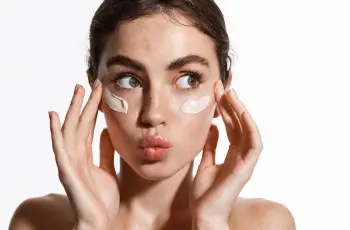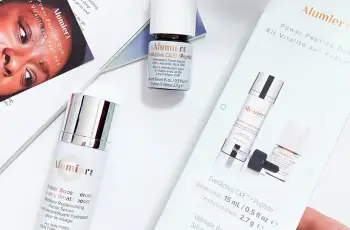
Could Omega-3s and the Mediterranean Diet Be the Secret to Clearer Skin?
Acne is a common skin condition that affects millions worldwide. While many rely on creams and medications, emerging research hints that diet might play a key role in improving skin health. Specifically, omega-3 fatty acids and the Mediterranean diet have been spotlighted for their potential benefits.
A recent study suggests that combining omega-3 supplements with the Mediterranean diet may help reduce acne symptoms. This research opens a promising door beyond traditional acne treatments.
But how exactly might these dietary choices impact skin?
Understanding the Study: Who Participated and What Happened
In a study published in the Journal of Cosmetic Dermatology on July 10, researchers tracked 60 people with mild-to-moderate acne. These participants were mostly women, averaging 26 years old.
At the start, nearly all had low omega-3 levels.
None were on acne medications during the study, which lasted 16 weeks. The participants followed the Mediterranean diet and took an algae-based omega-3 supplement.
They met with researchers four times to monitor progress.
By the study’s end, 42 participants noticed clearer skin and fewer acne lesions. The researchers also measured significant improvements in inflammation markers. Overall, omega-3 levels in participants increased.
Why Omega-3s and Mediterranean Diet?
Omega-3 fatty acids and the Mediterranean diet both reduce inflammation and may help regulate hormones linked to acne.
Acne occurs when pores clog with oil and dead skin cells, leading to inflammation often worsened by hormonal imbalances.
Omega-3s are known for their anti-inflammatory effects. This means they might calm the redness and swelling common in acne.
The Mediterranean diet, rich in vegetables, nuts, whole grains, and healthy fats, also supports skin health by lowering inflammation and improving hormone balance.
The Science Behind Acne and Diet
Acne is primarily caused by excess oil production, hormonal changes, clogged pores, and inflammation triggered by bacteria like Cutibacterium acnes.
Factors like stress, genetics, and lifestyle also influence acne severity.
Diet can impact acne by affecting oil production and skin bacteria balance. Foods high in sugar and dairy products may worsen acne by spiking blood sugar or altering hormones.
On the other hand, nutrient-rich diets help maintain healthy skin.
What Is the Mediterranean Diet?
The Mediterranean diet mimics traditional eating habits from countries around the Mediterranean Sea.
It emphasizes whole foods like fruits, vegetables, nuts, legumes, olive oil, and moderate amounts of fish and dairy. Processed foods and sweets are limited.
This diet is linked to many health benefits beyond skin care, such as reduced risks of heart disease, cancer, and cognitive decline.
Its focus on nutrient-rich, anti-inflammatory foods makes it a natural choice for those seeking clearer skin.
How Omega-3s Help Your Skin
Omega-3 fatty acids are essential fats found in fish, nuts, and seeds. They reduce inflammation throughout the body, including the skin.
People with low omega-3 intake may experience more inflammation and oil imbalance, both of which can trigger acne.
Omega-3s help by regulating the skin’s oil production and calming inflammatory responses. Supplementing omega-3s or increasing their dietary intake could be a key step toward healthier skin.
What Did the Researchers Conclude?
The study showed promising results but stopped short of declaring a direct cause-and-effect link.
More research is needed to confirm whether the diet or supplements alone improved acne or if a combination of factors played a role.
The study’s limitations included a small, mostly female group and reliance on self-reported diet data.
Despite this, experts agree that diet plays an important role and should be considered alongside medical treatments.
Experts Weigh In on Diet and Acne
Dermatologists highlight that dietary changes aren’t a cure-all but can be an important part of acne management.
Dr. Anne Guertler from Ludwig Maximilian University said lifestyle changes should complement prescription treatments, not replace them.
Other experts emphasize eating nutrient-dense foods and avoiding processed, sugary items to reduce inflammation and hormone disruptions linked to acne.
Practical Tips for Using Food to Support Your Skin
If you’re considering dietary changes for clearer skin, start with a balanced, nutrient-rich diet. Focus on:
Eating plenty of fruits, vegetables, and whole grains for fiber and antioxidants.
Incorporating healthy fats from fish, nuts, seeds, and olive oil, rich in omega-3.
Drinking enough water daily to stay hydrated.
Avoiding highly processed, sugary foods and drinks.
Choosing low-glycemic foods that help stabilize blood sugar and hormones.
Dr. Victoria Billero from Tufts University recommends pairing carbs with healthy fats like avocado or olive oil to slow sugar absorption, preventing blood sugar spikes that can worsen acne.
What to Remember Before Changing Your Diet
While diet can influence acne, it’s important to consider other factors like genetics, environment, and medications.
If over-the-counter treatments and dietary changes don’t work, consulting a dermatologist is key.
Acne treatment often requires a holistic approach combining lifestyle, diet, skincare, and sometimes medications. Diet can boost skin health but may not resolve acne alone.
The Bigger Picture: Diet and Skin Health
Beyond acne, the Mediterranean diet and omega-3s offer broad health benefits. Anti-inflammatory foods support heart, brain, and overall well-being.
The positive effects on skin might be one of many reasons to adopt these habits.
Good nutrition lays a foundation for healthy skin. It supports immune function, reduces oxidative stress, and improves skin repair. Even if acne doesn’t clear completely, your skin and body will benefit.
Final Thoughts
This new study adds to a growing body of evidence linking diet to skin health.
Omega-3 supplements combined with a Mediterranean diet may reduce acne severity by tackling inflammation and hormonal imbalances.
Though more research is needed, the findings encourage people to view diet as part of a comprehensive acne care plan.
Eating nutrient-rich, anti-inflammatory foods while limiting processed and sugary items could support clearer, healthier skin.
If you struggle with acne, consider discussing diet changes with your healthcare provider alongside traditional treatments. A balanced approach may offer the best chance at lasting skin improvements.


